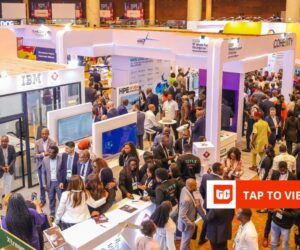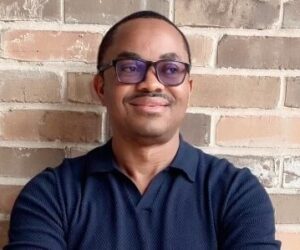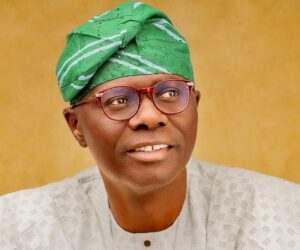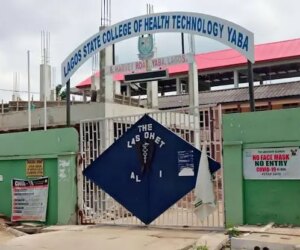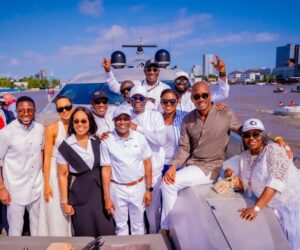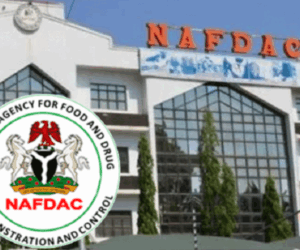Nature had gifted the coconut with water from birth; woe betide the mocker who thinks it was on account of the rain. Just like the coconut, Lagos, Nigeria’s bustling city of some 20 million souls, has always benefitted from an embarrassment of riches. Its indigenes embraced the race towards Western education and modernisation since the 1800s, and the following century witnessed the mass return of its children earlier sold out to slavery.
Lagos has been compared to New York and many other cities. But there is really no place that truly compares with Lagos. Consider the popular local saying, “Èkó gb’olè, ó gb’òlę— “Tolerant Lagos embraces both the thief and the indolent”.
Eko was its original name. Its indigenes and other Yoruba-speaking residents still call it by that name. A Portuguese explorer, Rui de Sequeira, had visited the area in 1472, naming the area around the city Lago de Curamo, which means Lake of Curamo. They call that area Kuramo waters today. And, of course, there is that other Lagos, a coastal town in the Algarve region of Portugal, from which sailors and merchants ventured to distant places.
To understand what makes Africa’s second most populous city tick, it is important to fathom its unique alchemy— Eko’s magic, which turns rustic individuals into gentry and common hustlers into thriving merchants. Originally deeply layered with stratification based on level of westernisation/exposure, it has all the same always been a place that was at once vibrant and chaotic, idyllic and alluring. Before the skyscrapers and overhead bridges occluded the horizon, the aquatic serenity whispered many possibilities beyond the horizon.
That idyllic Lagos has largely disappeared. But its warm embrace still caresses both the thief and the indolent, the sage and the idiot, the whizkid and the hustler. Lagos still routinely turns lead into gold, making some think that it has grabbed more than its fair share from the rest of Nigeria and that there is really no difference between Lagos and any other place. They’re wrong. A shrub can be renamed a rose, but it won’t smell as sweet.
Those who have not experienced the opulent poverty of parts of Lagos are incapable of bridging their knowledge handicap through only listening to a story or two. It takes a fertile imagination. And if Beverly Hills were a lady, she would be green with envy at the sight of new islands on which eye-popping villas perch as if acting as a bridge between two worlds. As you turn 360 degrees, you see all around you, a little bit of this and a little bit of that. And then it hits you: The contradictions of wealth and poverty, tradition and modernity, chaos and creativity are responsible for birthing the phenomenon of turning scarcity into innovation, and hardship into art, fashion, and culture.
Try as you may, that mix may not give the same results in any other expanse of earth in this or any other continent. Every city is unique in its own way.
Recently, I stumbled on an online forum that claimed to be campaigning for “the reduction of federal funds being splashed on ports, bridges, trains, and new cities in Lagos”. One of the conveners of the forum, who took a lead in most of the discussions, read out various figures about federal investments in Lagos as compared with other states. Then he alleged that seaports in other parts of the country were being deliberately destroyed in order to make Lagos the sole viable seaport in the country.
Another rumour monger added that he had checked through all the figures and that Lagos was feeding off the rest of the country. He said all the talk about Lagos being prosperous was hype. One unfortunate participant who had accessed more information than was good for him tried to tell his colleagues that they were wrong. He was booed roundly, and when the forum became ungovernable, the moderator appealed to the man to write out his submissions and submit them so that people could digest them in their quiet moments.
I have learnt since our return to party politics in 1999, not to argue publicly with fellows who blow several fuses at the mention of anything contrary to their views. It occurred to me that there were many people like the mob baying for the blood of the man who was shouted down at the forum. Perhaps we could all benefit from just sharing ideas and facts?
There is so much material on the various projects in Lagos that I felt that whoever was interested in the subject could at least browse through it. There was an article written by the controversial Reno Omokri. It intrigued me in its directness and simplicity. Apparently, he was addressing the larger issue of protests based on lies. But that is not up my street. I don’t get mired in political talk. But I am interested in the parts that address the allegations of Lagos shortchanging the rest of the country.
The points I extracted further lend weight to my campaign during the Buhari administration that the petroleum tank farms in Apapa and a good chunk of the operations of the Apapa Ports be transferred to Calabar and other ports to allow Lagosians to breathe. Commuters in that axis went through hell spending more than four hours in each direction until the advent of the Dangote Refinery at the Lekki Free Trade Zone, and the completion of works on the Oshodi-Apapa expressway. People suffered!
To clear any cobwebs regarding the claim that the federal government was funding too many projects in Lagos to the detriment of other states, I have taken the liberty to paraphrase the points distilled from the aforementioned article by Omokri with the hope that sharing information with an audience that knows its benefits, cannot be harmful.
The port in which the Nigerian government has invested the most money is Onne Port, not Lagos Port.
Rivers State has two major seaports: Port Harcourt Port and Onne Port. Onne Port alone is responsible for 65% of Nigeria’s maritime export.
The most expensive infrastructure in Lagos is the $21 billion Lekki Free Trade Zone. The Lagos State Government built it. Because of that infrastructure, Alhaji Aliko Dangote chose Lagos State as the site for his $19 billion Dangote Refinery, which was built at the Lekki Free Trade Zone. Lekki Worldwide Investments is an investment company, owned largely by the Lagos State Government: 40 percent of Lekki Worldwide Investments is owned by LSDPC, the Lagos State Government Development Corporation, with another 40 percent owned by Ibile Holdings, the investment company of Lagos State.
The $6 billion Eko Atlantic City project was built by the Lagos State Government along with their private sector partners and is now the most expensive commercial real estate in Africa.
The combined Lagos Blue, Red, and Green lines are worth $5 billion. Lagos State built this alone, without Federal Government participation.
Lagos generated almost 50% of the total VAT generated by Nigerian states at ₦2.78 trillion. The South-West geopolitical zone, as a unit, contributed ₦3.11 trillion in VAT. Yet, Lagos only got back ₦460 billion, just 16% of what it contributed.
The State Government does not discriminate in its hiring policy. They have Hausa, Igbo, Ijaw, Efik, Tiv, and other employees… There are free soup kitchens in every local government of Lagos serving free food to whoever walks in….
Anyone in doubt or simply curious about the kind of fibre that makes up Lagos should read my piece of September 15, 2024, “Salute to the Lagos Aborigine”. Lagos is Lagos. The coconut already had water before the rains came!


